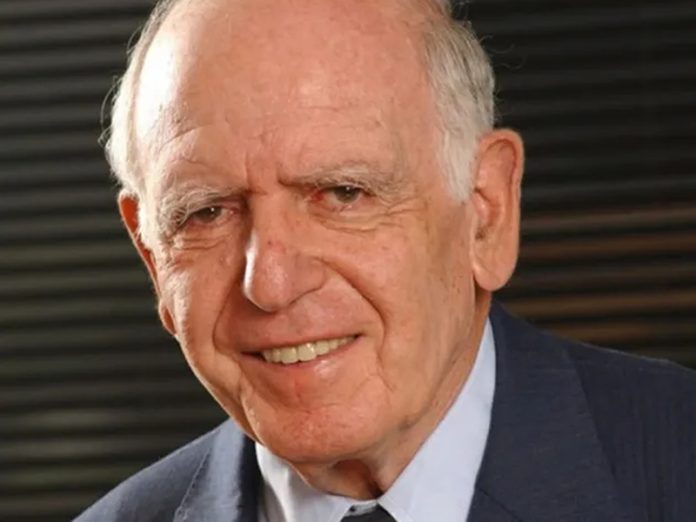Last Thursday, 7th September, the day that news broke of the passing of business stalwart Raymond Ackerman, key figures in the franchising industry attending the Fuel Retailers’ Association Conference paid tribute to one of franchising’s staunchest supporters. They expressed their deep respect for a man that did so much for business, entrepreneurship, skills transfer and job creation.
Nelia Kirsch, Group Executive, Franchise at Pick n Pay, a speaker at the event and FASA’s Chairperson Elect for 2025/2026, took to the podium to give a heart-felt tribute to a man who led from the front and who imbued not only his corporate staff and franchisees, but the nation with his sense of fairness, his commitment to entrepreneurship and his community and philanthropic ‘giving back’ philosophy.
Eric Parker, franchise stalwart and a founder of the Franchise Association of South Africa, also paid tribute to Raymond Ackerman, saying he worked closely with him during those early days when Pick n Pay started franchising. “At the time, and even now,” said Parker “there are two myths about franchising; one, that a big corporation does not make a good franchise; and two, that it is virtually impossible to franchise a business that deals in low-margin items. Raymond Ackerman, in setting up his first franchise in 1993, dispelled that myth and proved that a retailer in the supermarket sector can franchise successfully and that a large corporation can be an outstanding franchisor. What he also proved was that the success or otherwise of a company wishing to become a franchisor depends less on the industry sector and more on management’s willingness to approach the issue with integrity.”
Behind the success of the Pick n Pay brand and specifically of its franchise division lies Raymond Ackerman’s unwavering commitment to the development of entrepreneurial talent and enterprise creation, which over the years spread from giving franchise opportunities to people from all walks of life to doing the same in the supply chain through local suppliers and through community involvement. “There is no question that Raymond Ackerman succeeded in keeping a strong entrepreneurial spirit alive and contributed to the success of franchising in South Africa today. He believed that franchisees needed to be hand-picked to ensure a good culture fit and painstakingly groomed for success entrenching the win/win formula so fundamental in franchising.”
FRA President Mike Motsoane, in his closing remarks at the conference, reminded us how Mr Ackerman always fought for the consumer – whether it was in not raising the bread price or in publicly taking on the government in the 1970’s to sell petrol at a discounted price. “In today’s world, where the battles seem insurmountable, Raymond Ackerman fought for the rights of the consumer and made customer service his top priority and the core of his business philosophy – and was often seen on the supermarket floor, encouraging staff to go the extra mile whilst assisting and interacting personally with his loyal customers.”
Fred Makgato, CEO of the Franchise Association recalls how, early in his career, he read Raymond Ackerman’s book about his unique business philosophy and was inspired to pursue his own business career. “I’m sure there are many like me who took inspiration from this giant of a man who was both a visionary and a philanthropist and humanitarian. His approach to business embodied all the principles that are fundamental to franchising success – from collaboration that results in success for all parties to acknowledgement and respect for everyone one meets in the business journey – franchise partners, stakeholders, suppliers, staff and consumers.”
Maria D’Amico, FASA’s Chairperson acknowledges the role that Raymond Ackerman played in the establishment and success of the Franchise Association of South Africa which has been overseeing the ethical roll out of franchising for the past 44 years. “He was a staunch supporter of the relevance of the Franchise Association and led its growth of ethical franchising from its early days in the 1970’s to its position today as an important contributor to the country’s GDP, to the development of entrepreneurs, to skills development and to much needed job creation.”



